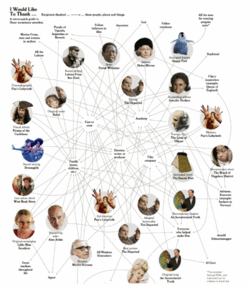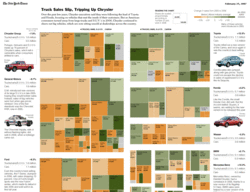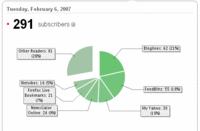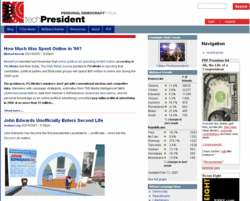 The story of Primedia has largely been a disappointing one for shareholders and employees alike.
The story of Primedia has largely been a disappointing one for shareholders and employees alike.
The Company was originally founded as K-III Communications by Bill Reilly, Charlie McCurdy and Beverly Chell, with backing by KKR. The management team had formerly run Macmillan Publishing, and following Macmillan's acquisition by Robert Maxwell, the team approached KKR with the intent of building a top tier media and publishing company.
The model employed by K-III was the leveraged buildup, a new form of financing pioneered by KKR and later profiled in an HBS case study. The model, using debt to finance acquisitions, required a strong level of discipline in acquisition terms (multiples) and strong organic growth to fund the debt. Unfortunately, over time, Primedia began to pay higher multiples in an effort to "buy earnings", while many of its properties (including a number of former MacMillan businesses) were past their peak and not able to generate growth organically.
In the mid-to-late 1990's, Primedia began to divest assets to fund the debt. Initially, press releases would talk about divestitures of "non-core assets". Over time, a number of the flagship assets, including Seventeen and New York Magazines were sold to pay down the debt. Last year, Primedia sold off its b2b trade publishing unit (now Prism Business Media).
What was left was a slimmed down company (less than $1 billion in revenues) with three primary businesses: Enthusiast media (largely automotive), Consumer Guides (Apartment Guides, New Home Guides and Auto Guides) and Education (a small segment built largely around Channel One).
Now, via PaidContent and the Primedia website, comes word of their plan to sell the Enthusiast Division, with more than 90 websites, 75 publications, 65 conferences and more than half of their 2006 revenues. The sale will be used to pay down debt.
Assuming they are successful with their divestiture, that will leave a business consisting mainly of the Apartment and New Home Guides, plus Channel One. While this business (formerly known as Haas Publishing) has always been among the most profitable businesses for Primedia, it's astounding to think that's all that is left from what was once a $2 Billion diversified publishing business. While I'm sure that KKR will be happy to recover some of its investment (after 15+ years), for those of us who previously worked at Primedia, it's sad to see.
UPDATE: The NY Post (which has always covered Primedia more closely than the mainstream business news) has this article, suggesting the sale will bring $1 billion or more.
![]() Data visualization is not yet mainstream, but it continues to pop up, giving users a better understanding of complex views of data.
Data visualization is not yet mainstream, but it continues to pop up, giving users a better understanding of complex views of data. The New York Times has begun to integrate visual maps more and more into their content. Today’s Times includes a visual map showing links between Academy Award winners and the parties they thanked, including mom, the Academy, God, their fellow nominees and even the “People of Uganda, Argentina or Bavaria” (had Borat won, we could have added the People of Kazakhstan).
The New York Times has begun to integrate visual maps more and more into their content. Today’s Times includes a visual map showing links between Academy Award winners and the parties they thanked, including mom, the Academy, God, their fellow nominees and even the “People of Uganda, Argentina or Bavaria” (had Borat won, we could have added the People of Kazakhstan).










